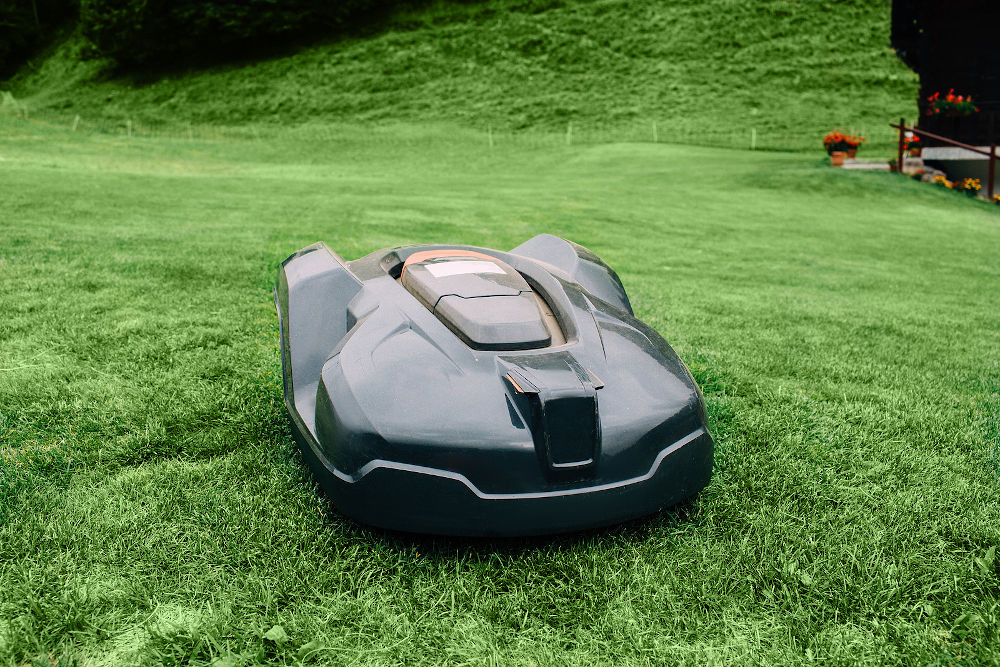Maintaining the grounds of a luxury property involves a blend of artistry, practicality, and a good deal of strategic thinking. The goal is to create an environment that not only complements the elegance of the home but also provides a functional and enjoyable outdoor space.
Here, we explore innovative solutions that can help you manage your high-end property’s garden with style and efficiency.
Embracing technology for efficient garden management
Technology has become an invaluable tool in the management of luxurious gardens. From smart irrigation systems to robotic lawn mowers, there are a variety of gadgets that can make maintaining your property easier and more efficient.
Smart irrigation systems, for instance, can be programmed to water your garden at optimal times, ensuring that your plants receive the right amount of water without wastage. These systems can also adjust watering schedules based on weather conditions, which is particularly useful during dry spells or periods of heavy rain.
Robotic lawn mowers are another fantastic addition. These machines can navigate complex garden layouts, cutting the grass to your desired height without you having to lift a finger. They are especially beneficial for maintaining large lawns, freeing up your time to enjoy your beautiful surroundings.

Sustainable practices for a greener garden
Sustainability is becoming a core value for many luxury property owners who are keen to preserve the natural beauty of their surroundings while reducing their environmental footprint. Integrating eco-friendly practices into your garden management not only benefits the planet but also enhances the health, vibrancy, and aesthetic appeal of your outdoor spaces.
Composting is a simple yet highly effective way to recycle organic waste. Setting up a compost bin in a discreet corner of your garden can transform kitchen scraps and garden waste into nutrient-rich compost. This organic matter acts like a superfood for your plants, improving soil structure, retaining moisture, and providing essential nutrients.
The process is straightforward: combine green waste (like vegetable peels and coffee grounds) with brown waste (such as leaves and twigs), keep it moist, and turn it regularly. Over time, this mixture breaks down into a rich, dark compost that will significantly benefit your garden.
Rainwater harvesting is another sustainable practice that’s both practical and environmentally friendly. By installing a rainwater collection system, such as a simple rain barrel connected to your downspouts or a more complex underground tank, you can capture and store rainwater for use during dry periods. This practice conserves precious mains water and also provides your plants with natural, chlorine-free water.

Choosing the right tools and equipment
Equipping yourself with the right tools is fundamental for efficient and enjoyable garden management. High-quality tools not only make gardening tasks easier but also enhance the overall quality of your work, leading to better results.
Start with a sturdy spade for digging, planting, and soil preparation. A reliable pair of secateurs is essential for pruning shrubs, deadheading flowers, and cutting back perennials. A durable wheelbarrow will save you time and effort when transporting soil, compost, or garden debris around your property. Investing in high-quality tools may require a higher initial outlay, but they often prove to be more durable and efficient, making them cost-effective in the long run.
For larger tasks, powered equipment becomes indispensable. A good lawn mower is crucial for keeping your grass neatly trimmed, while a leaf blower can quickly clear fallen leaves and debris. Hedge trimmers make light work of shaping and maintaining hedges, ensuring your garden’s structure remains tidy and visually appealing.
Sack trucks are particularly useful for managing a luxury garden. These versatile tools, also known as hand trucks or dollies, can help you move heavy pots, bags of soil, and other bulky items with ease. They reduce the risk of injury and save significant time and effort, allowing you to focus on the more enjoyable aspects of gardening.
Not sure where to find the ideal option for you? The Workplace Depot sack trucks offer versatile and highly convenient sack trucks that will help you avoid strained muscles and a sore back.

Innovative planting techniques
Exploring innovative planting techniques can help you create a garden that is both stunning and low-maintenance. These techniques are designed to maximise the beauty and functionality of your outdoor spaces while minimising the effort required to maintain them.
Xeriscaping is an excellent technique for creating a water-efficient garden. By selecting drought-tolerant plants, you can significantly reduce the need for watering, making your garden more sustainable and easier to care for. Popular xeriscaping plants include succulents, lavender, and ornamental grasses, all of which thrive in dry conditions and require minimal maintenance.
Vertical gardening is another innovative method that can add interest and functionality to your garden. By growing plants on walls, trellises, or vertical planters, you can make the most of limited space and create eye-catching displays.
Regular maintenance and seasonal care
Maintaining a garden is much like caring for a cherished friend – it requires consistent attention, a bit of effort, and a lot of love. Regular upkeep is essential to keep your garden looking its best and thriving throughout the year. Tasks such as mowing the lawn, trimming hedges, and weeding are the backbone of garden maintenance. These activities ensure that your garden remains tidy, healthy, and visually appealing.
Seasonal care, on the other hand, addresses the specific needs of your garden throughout the year. Each season brings its own set of tasks that help prepare your garden for the changing weather and ensure it remains vibrant and healthy.

In spring, the garden awakens from its winter slumber. This is the perfect time to plant new flowers and shrubs, taking advantage of the moist soil and moderate temperatures. Spring is also the season to prepare your garden beds, adding compost and mulch to enrich the soil and retain moisture. Pruning early-flowering shrubs after they bloom ensures they remain healthy and produce more flowers the following year.
Summer is the season to relish your garden’s beauty, but it also demands vigilance. Watering becomes crucial, especially during dry spells. Early morning or late evening watering helps minimise evaporation and ensures plants get the hydration they need. Mulching around plants can help retain soil moisture and keep weeds at bay. Pest control is another summer priority; keep an eye out for aphids, slugs, and other garden pests, and address them promptly to prevent infestations.
Autumn is a time of transition, where the focus shifts to tidying up and preparing the garden for the colder months. Clear fallen leaves to prevent them from smothering your grass and perennials. Collecting leaves can also provide valuable material for composting. Autumn is also a good time to plant bulbs for spring flowers and to divide and replant perennials. Protecting tender plants with a layer of mulch or fleece can help them survive the winter.
Winter may seem like a quiet time in the garden, but it’s an excellent opportunity to plan and prepare for the coming year. Conducting necessary repairs on garden structures and tools ensures everything is in good working order when spring arrives. Winter is also a great time to review your garden’s layout and make plans for any changes or additions you want to make. Whether it’s sketching out new garden beds, selecting new plants, or planning hardscaping projects, winter planning can set the stage for a successful growing season.
The bottom line
Managing a luxury property’s garden involves a combination of technology, sustainability, professional expertise, and the right tools. By embracing innovative solutions and maintaining regular care, you can create a stunning outdoor space that enhances your property and provides endless enjoyment.
Whether it’s through smart irrigation systems, sustainable practices, or simply investing in high-quality equipment, there are numerous ways to ensure that your garden remains both beautiful and functional.






















